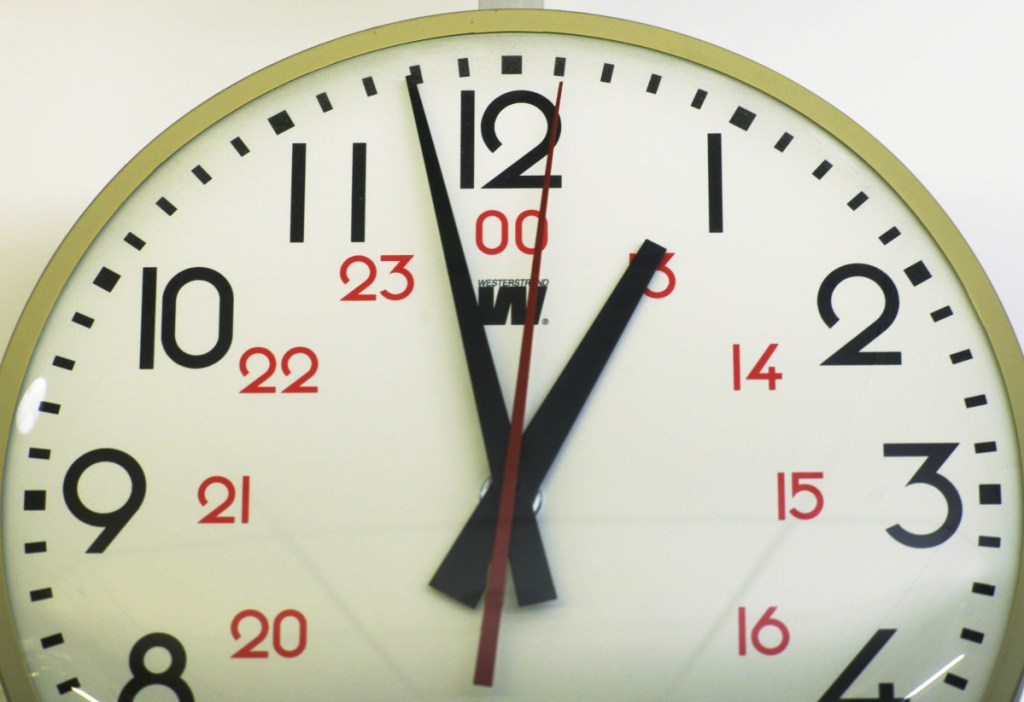WASHINGTON — Running late for work or just miss that bus? You could have a good excuse: Your electric clock might be running a bit cuckoo.
Because of a change in federal energy regulations, some scientists say your trusty, older plug-in clock may be losing or gaining a few ticks over time.
Electric clocks keep time based on the usually stable and precise pulses of the electric current that powers them. In the U.S., that’s 60 hertz (cycles per second). In the past, regulators required power companies to immediately correct the rate if it slipped off the mark. But that precision is expensive to maintain, so last year, the correction part was quietly eliminated by the Federal Energy Regulatory Commission.
Energy officials insist other standards will keep the time in check, and so far the problem has not amounted to more than a few seconds here and there.
But some scientists looked at what could happen without the time correction rule and concluded clocks could gradually go off-kilter if the grid’s power was delivered consistently at higher or lower rates than 60 hertz.
That can happen when power demand surges or slows because of weather and the grid can’t adjust right away. Cellphones, newer clocks with GPS, those connected to cable TV and modern ones that don’t rely on the grid to keep time aren’t affected, experts said.
Earlier this year, in the eastern half of the country, a time error of 10 seconds too fast went uncorrected for a week or more.
It was during a bitter cold snap and utilities didn’t think it was wise to tinker with power levels, said Bill Henson of the system operator for New England. Generally, time errors are fixed every three to five days in the eastern U.S., he said.
Send questions/comments to the editors.



Success. Please wait for the page to reload. If the page does not reload within 5 seconds, please refresh the page.
Enter your email and password to access comments.
Hi, to comment on stories you must . This profile is in addition to your subscription and website login.
Already have a commenting profile? .
Invalid username/password.
Please check your email to confirm and complete your registration.
Only subscribers are eligible to post comments. Please subscribe or login first for digital access. Here’s why.
Use the form below to reset your password. When you've submitted your account email, we will send an email with a reset code.